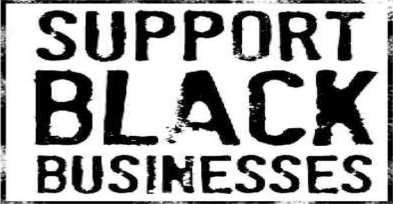This past weekend, a lot of us saw the video of Portland Police beating and tasing a 16-year-old. To make matters worse, this comes at time when there are anti-police brutality protests and discussions all around the city. Apparently the police still don’t give a fuck about Black people.
While I’m not big on protests, I was a fan of the nationwide Black Out Monday. On Sep. 8, participants only spent money at Black businesses. The demonstration helped to raise awareness of the $1 trillion in buying power Black people have and how we can leverage it.
The fact is we live in a capitalist society. No matter what idealistic notions we have, the job of the police is to protect property owners. Thus, if you’re trying to make a statement that will get their attention, you have to speak their language.
Picketing and marching is like yelling at the power structure in Klingon. At best, this results in symbolic concessions, just to shut people up until the next outrage. You know, like a monument commemorating the “historic African American community” in a gentrified neighborhood. Or one Black woman getting into a white institution, only to be driven out of her mind, a la episodes of the Real World in the 90s.
And let’s not talk meeting force with force. How many tanks do we own? How many Spook Who Sat by the Door militias are ready to go? Even if we could beat the police, are we ready to take on the military? Ask Iraqis how that’s working out for them.
So maybe it’s time to look at financial protest. Only spending money at Black businesses for a day is cool, but shouldn’t growing our economy be a lifestyle?
Last year, there was a call to spend $20 a week at Black-owned businesses. I did it for a while before realizing the philosophy works better in some places than others. Currently, Portland isn’t one of those places. I’m a freelance writer. I can’t get weekly haircuts and eat out all the time.
When it comes to weekly necessities, how many Black-owned businesses can you go to, not just in Portland, but Oregon period? I’m talking about grocery stores, gas stations, and banks. I’m talking about housing and healthcare. I’m talking about insurance agencies.
To take it a step further, how are Black-owned businesses doing when it comes to work that’s always in demand? Things like construction, education, information technology, and manufacturing, just to name a few.

Beyond counting owners, how many provide good service? It’s almost cliché to say we need to own our own businesses, mainly because that’s where the conversation tends to stop. Supporting Black business goes beyond throwing money at anything Black. We have to be honest. While there are many good businesses that could use our support, there are also a lot of Black people selling bullshit.
Think stores that don’t know the meaning of regular business hours. Or education programs that produce more photo-ops than results. Even contractors who take shortcuts, don’t get the mandatory certifications, then cry, “discrimination.” Do you really want that person building the bridge you cross every day?
So when we talk about supporting Black business, it’s more than patronizing the good ones out there. It’s also working to fill in the gaps where we don’t have a presence and being able to compete with anyone, not just play in the game.
What does this look like? Make an impact with kids early on, whether that’s volunteering in schools, helping kids with their homework, or actually becoming an educator. If you find a kid (or an adult for that matter*) who has a passion, help steer her to the best training available. Get her in contact with the best mentor you can find, regardless of race. Support scholarship programs.
On a personal level, build your credibility in the work world, whether you’re self-employed or not. A name that holds weight on a job recommendation could make all the difference in getting someone’s foot in the door.

This isn’t as sexy as a march. It doesn’t translate to riveting news stories and TV coverage. More often than not, it requires hard conversations—pissing off friends, collaborators, associates, and those you want to love you, as opposed to going back and forth with enemies, creating more ratings than progress.
Perhaps most discouraging, it’s a long-term process. The same long-term process we credit our ancestors with undertaking, just so we could enjoy the benefits we do today. If we’re singing the same songs from the 60s and getting beat like it too, something’s wrong.
This doesn’t take perpetrators of police brutality off the hook. They still need to be fired and prosecuted. But good lawyers cost money too.
*I was doing an interview at Columbia River Correctional Institution two weeks ago. The two biggest takeaways were the desire for more job training and the recognition of just how much talent is housed in these facilities. Not just people trying to be artists, but potential architects, businessmen, chefs and anything else you can think of. Many just need someone to point them in the right direction, whether that’s training, internships, or immediate job openings.


